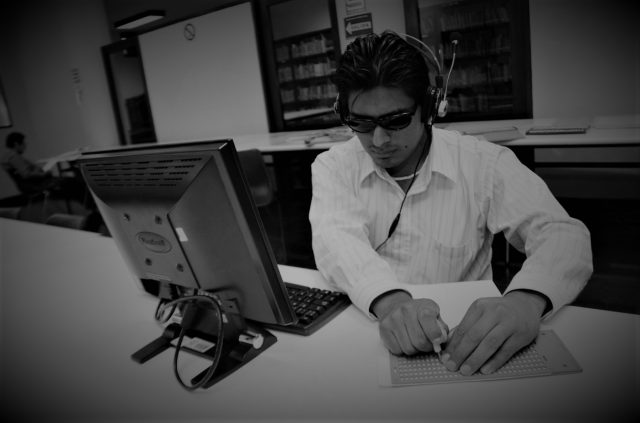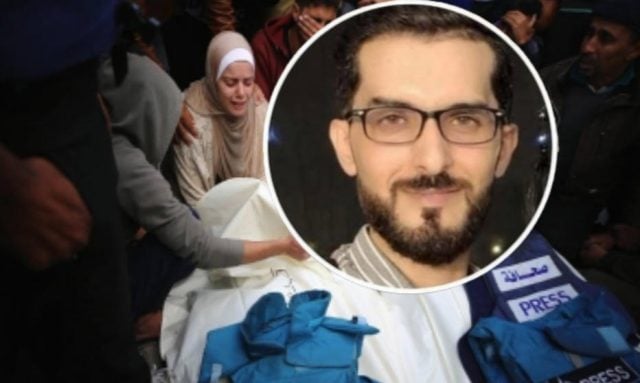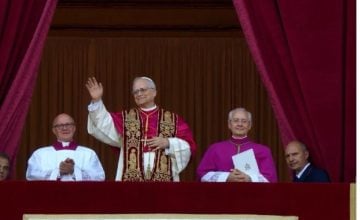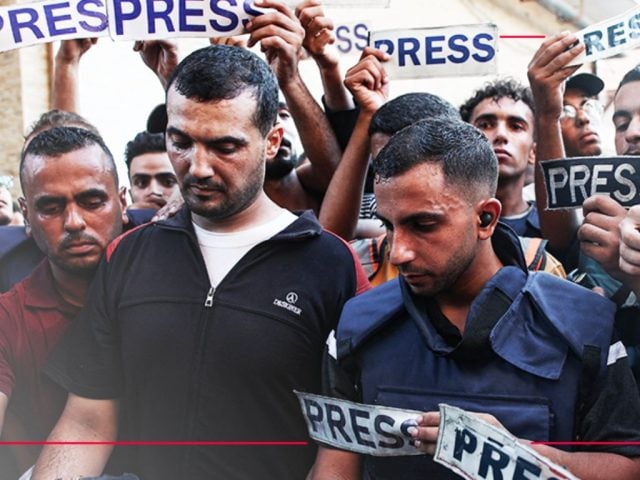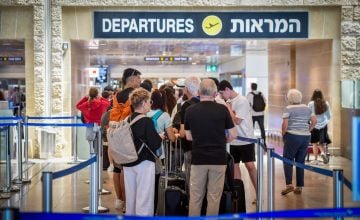The different sectors of the mexican society continue their particular struggles to improve their conditions in the country’s electoral processes. Although there are already notable advances for people with disabilities, this community believes that there are still many ‘potholes’ to jump.
Among the flaws that persist for people with disabilities is their participation in the polling booths, materials in Braille and translation into Mexican sign language. Furthermore, the outreach to political parties and their platforms remains inaccessible and the legislation that violates the political rights of people with disabilities survives.
In a report by the Inclusive Journalism Collective published on the Lado B portal in Mexico, this issue is explored in depth, which recalls that in January 2018, the National Electoral Institute (INE) published the Protocol for the inclusion of people with disabilities as civil servants. and officers of polling station boards and in which it is emphasized that «people with disabilities have the same rights of citizenship and, in this sense, the right and obligation to participate in the electoral function as members of the polling station board».
«I had wanted to collaborate for a long time. There is a girl in Spain that I follow in networks called Rosa Chacón (who is blind). She recounted her experience as a poll worker in Spain years ago and commented that her husband supported her as her assistant”, says Omar Martínez Morales, a young man who is visually impaired and who coordinates the area for the blind and visually impaired of the central library of the Meritorious Autonomous University of Puebla (BUAP).
In 2016, a representative of the INE denied Omar the possibility of being a polling station official due to his disability. On that occasion, the successor of former governor Rafael Moreno Valle Rosas was elected, who would hold the position until 2018.
«Those from the INE visited me at home for the first time in 2016 and I took the opportunity to show my interest in collaborating. I explained to them my situation of visual impairment and that that did not prevent me from participating as a polling station officer, that maybe I only had to have one person to assist me, who could be my wife. The trainers did not know what to do in cases like mine. They said they would check with their superiors and let me know. They never returned or looked for me», he was quoted as saying in the report.
During the 2016 election, there were 22 civil servants and poll workers with disabilities in Puebla –– and 482 throughout the country–– according to the “Report on the Participation of People with Disabilities in the Integration of the Polling Board of the election of the Constituent Assembly of Mexico City and the Local Electoral Processes 2015-2016″.
Positive changes
In 2018, Omar was elected again as a polling station official because, due to the proximity of the processes, the INE decided to repeat the names of those who had made up the polling station boards in the previous election. But unlike then, this time the trainers were ready to include people with disabilities as poll workers.
«The new ‘visitor’ of the INE was already aware that people with disabilities could participate, so we continued with the process. In addition, a mechanism was also created for people with visual disabilities to be accompanied by someone else», as established in the Protocol for people with disabilities as civil servants and polling station officials, explained the young man.
Three training sessions were held at home and two simulators with the rest of the members of the polling station board of directors. Omar’s wife, Natali Rojas Rivera, who would support him on election day, also participated in all of them. According to the same «Report on the Participation of People with Disabilities in the Integration of Polling Station Boards», 62% of poll workers did need support or special measures to carry out their functions.
The day of the election day arrived, on July 2, 2018, and in Puebla the municipal presidency, the governor’s office and the presidency of the Republic were going to be elected for office. Omar and his wife arrived at seven in the morning. He had to be second secretary and his responsibilities were to stain the thumb of the voters and return the credentials, set up the polls and ballot boxes, as well as the tallying of the votes out loud.
«It was pleasant to live and share this with the colleagues, from the president who bears the greatest responsibility, to the secretaries and members, who we are only supporters. When there were no people, well we started talking […] The day was quite calm, until we found out that there were shootings in other poll booths», said Omar.
Although Omar Martínez would not participate again as a polling station official, because he considers that it is very heavy work and there is a lot of stress due to electoral conflicts, he recognizes that it is a right and an obligation of people with disabilities to participate in these processes. «I believe that as citizens we must participate in the decisions of our community, after all, what happens in these polling stations is also going to affect us».
Mexico preparing itself better
According to the Local Board of the INE in Puebla, during the last election there was one braille template per polling booth; there were approximately 7,500 polling stations throughout the state. For the 2021 election, a similar amount could be seen, although it is likely that there will be changes in the electoral roll and, therefore, in the number of polls.
According to the Electoral Institute of the State of Puebla (IEE), in order to guarantee the right to vote of people with disabilities, it is sought that the polls have free and easy access. For example, that they are placed in places where there are ramps. Also for the 2021 election, they will have a mobile screen, which is adjusted to the height of people with disabilities or the elderly, and 8,250 braille templates will be provided, so that people with visual disabilities can vote.
In this regard, the counselor of the IEE, Luz Alejandra Gutiérrez Jaramillo mentioned during an interview that issues related to the inclusion of people with disabilities were dealt with from the INE’s training area. However, in April 2020 the State Congress amended the Electoral Law to incorporate a Directorate for equality and non-discrimination in the IEE, which began work on accessibility and inclusion issues in September 2020.
Another advance in terms of accessibility, according to the counselor Gutiérrez Jaramillo, is that all the IEE manuals have been translated into Braille, and include, for example: the protection of personal data from the electoral roll; electoral codes; gender parity in both the candidacies and the polling station boards and the scrutiny of votes; vote counting and the delivery of results.
The objective is that people that are blind or with low vision know the work carried out by both the IEE and the INE. In 2018, for example, they requested the collaboration of Manuel Gaspar Santiago, a young man with visual impairment, to review and correct the documents. “What I had to do was correct all the manuals, [which] had many errors. I corroborated the digital information with the one printed in Braille, marked the errors with a pencil and, later, the company that was in charge of printing the materials, took the material already revised and returned it corrected».
Also since 2019, the sessions of the General Council of the IEE with interpretation in Mexican Sign Language (LSM) began to be broadcasted, according to Gutiérrez Jaramillo. However, in a review made by this team, it was found that only some of the ordinary sessions hosted on the YouTube and Facebook platforms have LSM interpreters and sometimes have technical failures, are incomplete or with information gaps, resulting inaccessible for the deaf community.
The IEE counselor assured that in this electoral process they will seek to make the debates accessible. «Although they are not mandatory, the IEE can suggest that an LSM interpreter be incorporated», she indicated. The accessibility of both the electoral material, as well as the manuals, polling booths and debates between contenders is essential to guarantee the rights of 7.1% of the total number of people who joined the national electoral roll in 2013.
This percentage is part of the «Audit to IFE Update of the Electoral Register and Issuance of the Voting Credential» and is the only data on the electorate with disabilities in Mexico. In this same document, it was reported that 1,026 requests for voting credentials from people with disabilities were received that year, which leads to an increase that must continue to be attended to.
Access to web pages for people with disabilities
The web pages of political parties as well as electoral institutions are, in many cases, the first approach that citizens have with electoral processes. According to the Hear Colors Foundation, “the web is one of the most democratic media that exists. It has the ability to radically change the quality of life of people, particularly those with disabilities, the elderly, indigenous communities and people with a low level of education».
The National Council to Prevent Discrimination and the then Federal Institute for Access to Information and Data Protection (IFAI) published in 2011 the “Guide for Public Action. Accessible websites: a tool for equal access to information and interaction”, where they point out that having navigable websites for people with disabilities is not only a necessity, but a legal mandate of public institutions in accordance with the constitutional principles of non-discrimination and access to information.
Despite what one might think, the accessibility of political party websites is one of the most lagging indicators regarding the inclusion of people with disabilities. A tool from the Institute of People with Disabilities of the government of Mexico City, helped measure the accessibility of the sites of local and national political parties, as appropriate. This tool, developed by Hear Colors, measures three issues: percentage of accessibility, percentage of non-accessibility and percentage of requirements that must be reviewed by experts.
According to these criteria, the state political party with the most accessible website for people with disabilities is Morena, with 73.8% navigable, and the one with the least is Movimiento Ciudadano, with 14.1%. However, at the national level the least friendly portal for people with disabilities was the PAN, with only 6.4% of its navigable site. Similarly, the portals of the National Electoral and State Electoral Institutes were evaluated. While the national entity has an accessibility percentage of 62.1%, the regional fail with a 51% percentage.
The criteria used by Hear Colors respond to those proposed by the federal government in the document «Web Accessibility Criteria», which seeks «to list the criteria used for the evaluation of compliance with accessibility guidelines on web pages that are part of the procedures and technological solutions of government agencies ”.
Some of these indicators are related to images that have an alternative text that allows the screen reader to describe them adequately; images, especially complex ones, have descriptive text; input forms have descriptive text and buttons; embedded multimedia elements are identified by text, and the frames have an appropriate title, among other issues.
Lack of inclusion for disability
The report says that in view of the lack of inclusion of people with disabilities in the statutes of political parties and in electoral processes, it is added that the Code of Electoral Institutions and Processes of the State of Puebla is discriminatory, because in Article 281, section IV, it is stipulated that «in no case will access be allowed to the polling booth to people who are deprived of their mental faculties, intoxicated, under the influence of drugs, muffled or armed».
The same National Electoral Institute (INE), in its «Guide for Public Action (GAP): Elections without discrimination. Federal Electoral Process 2017-2018, Participation and Vote on Election Day notebook», states that: the current legal provision (also repeated in the General Law of Electoral Institutions and Procedures), «constitutes a form of direct discrimination because it is a differentiated and detrimental legal treatment for a social group due to their disability, which is one of the prohibited factors of discrimination”.
Mexico has significant reforms in the area of human rights, such as the General Law for the Inclusion of Persons with Disabilities (lGIPD), in addition to having signed international treaties on the rights of persons with disabilities and non-discrimination. And yet, restrictions such as the Code of Electoral Institutions and Processes prevail.
In the INE guide, this section of the Electoral Law is used as an example of discriminatory practices that specifically and unduly affect people with disabilities through legal impediments. And it mentions that in order to correct this and other acts of discrimination, in June 2012, the former IFE issued a circular in which it instructed electoral officials to facilitate and guarantee the right to vote for all persons with a voter identification card. and are on the nominal list, regardless of whether they have any type of disability.
However, a circular does not guarantee respect for the political-electoral rights of people with disabilities, especially the right to effectively stand as candidates in elections, hold office and perform any public function at all levels of government, such as it is stipulated by the Convention on the Rights of Persons with Disabilities.
Although there is an attempt by the electoral authority to facilitate the participation of people with disabilities in elections, with their integration as poll workers and the accessibility at the poll booths or to the ballots, there is still a long way to go to “actively promote an environment in that people with disabilities can participate fully and effectively in the management of public affairs, without discrimination and on equal terms with others”, as indicated in the Convention on the Rights of Persons with Disabilities.
Other pending issues are to clarify the statistical information of the electorate with disabilities and that the websites of both electoral authorities and political parties are fully accessible to people with disabilities.
«That in electoral processes people with disabilities have an active participation as electorate and as popular representatives is a way of advancing in the human rights model that is so much aspired in the Convention on the Rights of Persons with Disabilities», added the article.
